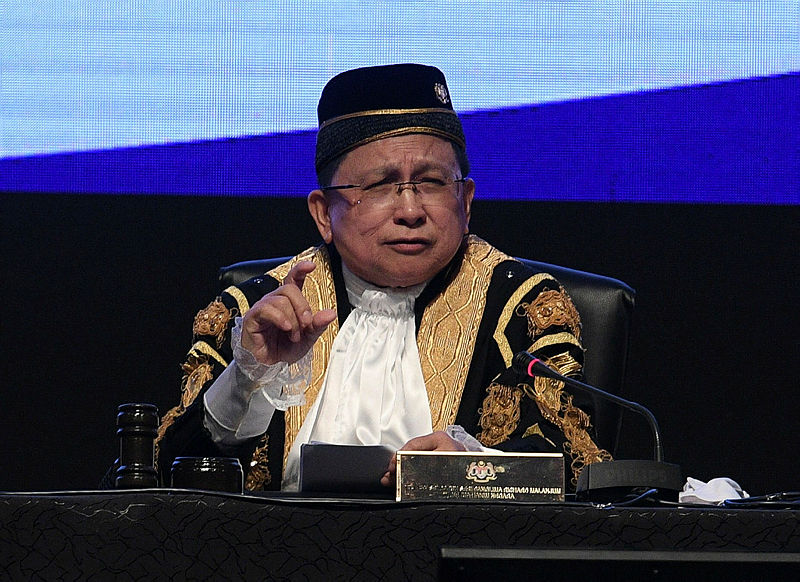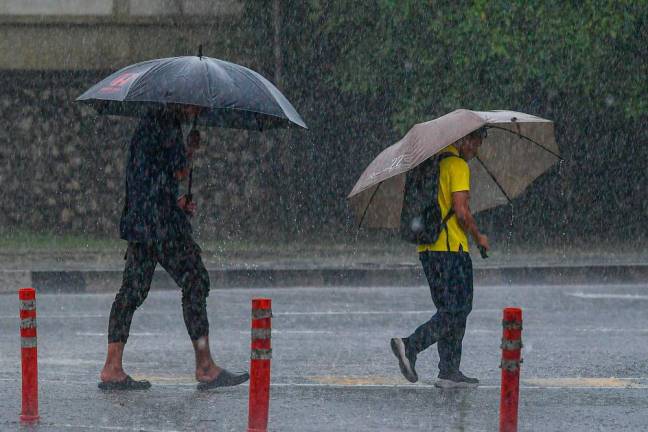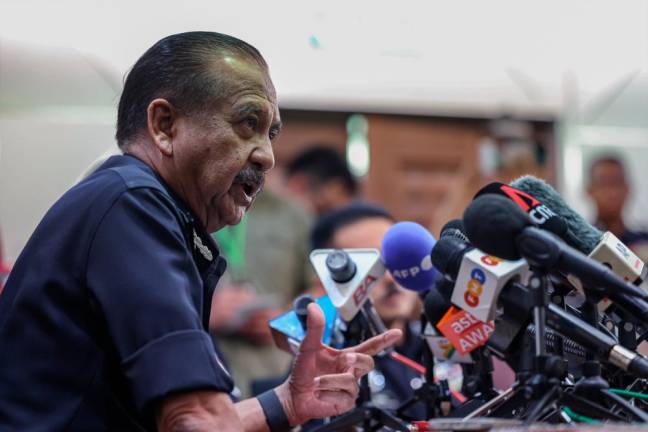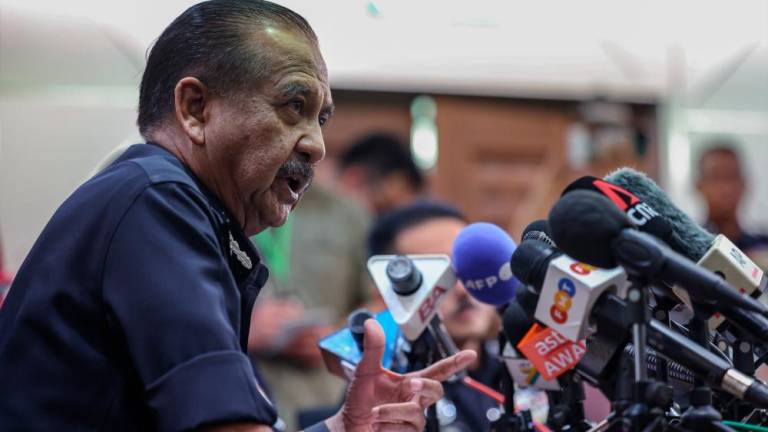PUTRAJAYA: Chief Justice Tan Sri Richard Malanjum explained that the training of Malaysian judges and judicial officers by the United States Department of Justice (DOJ) was not due to the high profile money laundering cases, such as the ones involving former Prime Minister Datuk Seri Najib Abdul Razak.
“They have been training us long before, since two years ago,” he told reporters after officiating the 53rd Judges Conference at the Putrajaya Marriott Hotel here.
He said the DOJ teaches on how to conduct the hearing, what to do and what to expect, what do you mean by cryptocurrency, human trafficking and what kind of evidence were required.
To a question on why the Malaysian judiciary were receiving training from DOJ, Malanjum said: “They have a lot of experience on those kind of cases and they offered us.”
Earlier today, in his speech at the launch of the Legal Year 2019, Malanjum said Malaysian judges and judicial officers have been receiving training from the DOJ on how to deal with modern crimes, such as money laundering, cryptocurrency fraud, terrorism and human trafficking.
Malanjum also said the Judicial Appointments Commission (JAC) would discuss the succession plan in the judiciary as seven federal court judges were retiring this year.
“Of course we have a plan, but not obliged to revealed as it is classified under Official Secrets Act (OSA),“ said Malanjum who is also JAC chairman.
The judiciary top man, however, said he was not sure whether the succession plan have been formulated.
The seven judges expected to retire this year were the top four in the judiciary including Malanjum and Federal Court judges Tan Sri Ramly Ali, Datuk Seri Balia Yusof Wahi and Datuk Alizatul Khair Osman Khairuddin.
The other top three persons in the judiciary are Court of Appeal President Tan Sri Ahmad Maarop, Chief Judge of Malaya Tan Sri Zaharah Ibrahim and Chief Judge of Sabah and Sarawak Datuk Seri David Wong Dak Wah.
On the Federal Court’s judgment in the appeals by a Filipino woman and a Thai national who were convicted for drug trafficking and sentenced to death for the offence, Malanjum said the judgment by the nine-man bench would be delivered by February.
He said the law allows for the remaining judges to deliver a judgment if one of the judges retired.
About five judges presiding on the nine-man bench is expected to retire this year.
In their appeals which was heard on Wednesday, the women challenged the constitutionality of Section 37A of the Dangerous Drug Act which allowed a court to invoke double presumption of possession and trafficking of drugs to convict an accused person. — Bernama













